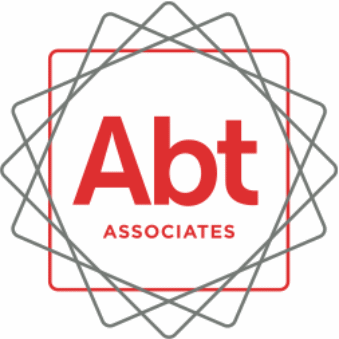Attachment X: Complete List of Previously Approved Instruments for HPOG 2.0
Attachment X_Complete List of Previously Approved Instruments for HPOG 2.0.docx
OPRE Evaluation - National and Tribal Evaluation of the 2nd Generation of the Health Profession Opportunity Grants [descriptive evaluation, impact evaluation, cost-benefit analysis study, pilot study]
Attachment X: Complete List of Previously Approved Instruments for HPOG 2.0
OMB: 0970-0462
S upporting
Statement for OMB Clearance Request
upporting
Statement for OMB Clearance Request
Attachment X: Complete Listing of Previously Approved Instruments
National and Tribal Evaluation of the 2nd Generation of the Health Profession Opportunity Grants (HPOG)
0970-0462
April 2019
Submitted by:
Office of Planning,
Research & Evaluation
Administration for Children & Families
U.S. Department of
Health
and Human Services
Federal Project Officers:
Nicole Constance, Hilary Bruck, and Amelia Popham
Request |
Instrument(s) |
Request Date |
Approval Date |
Link to Supporting Statement |
Original |
Participant Accomplishment and Grant Evaluation System (PAGES) (Instrument #1) |
5/13/15 |
8/6/15 |
https://www.reginfo.gov/public/do/PRAViewDocument?ref_nbr=201505-0970-002 |
1st Rev. |
Various baseline, process and contact update forms (Instruments #2-5b for the National Evaluation; #6-11 for the Tribal Evaluation) |
10/26/16 |
6/27/17 |
https://www.reginfo.gov/public/do/PRAViewDocument?ref_nbr=201610-0970-012 |
2nd Rev. |
National Evaluation Short-term Follow-Up Survey (Instrument #12) |
2/5/18 |
6/8/18 |
https://www.reginfo.gov/public/do/PRAViewDocument?ref_nbr=201802-0970-001 |
PAGES Grantee- and Participant-Level Data Collection. This includes grantee-level data collection on program components (e.g. training courses offered, types of supports offered) and participant-level data on participation, services provided, and program outputs. (Instrument 1, approved in August 2015)
PAGES Participant-Level Baseline Data Collection (participants at non-tribal grantees participating in the impact evaluation). This includes data on characteristics of eligible individual participants at intake (e.g., demographics, household characteristics, employment and education experiences, a child roster, and baseline data on expectations for the program) at the non-tribal grantees. (Instrument 1 approved in August 2015)
PAGES Participant-Level Baseline Data Collection (participants at tribal grantees). This includes data on characteristics of eligible individual participants at intake (e.g., demographics, household characteristics, employment and education experiences, and tribal specific data items) at the tribal grantees. (Instrument 1 approved in August 2015)
Informed Consent Forms (Form A: National Evaluation lottery required; Form B: National Evaluation, lottery not required; Tribal Informed Consent Form A -SSNs Included; Tribal Informed Consent Form B-Unique Identifiers Included). The informed consent forms provide information to participants to ensure they understand the nature of the research and evaluation activities being conducted. (Attachment B, B2 and B3 approved in August 2015, with revisions approved in January and July 2016)
Screening Interview to identify respondents for the HPOG 2.0 National Evaluation first-round telephone grantee interviews. (Instrument 2 approved in June 2017, now complete.)
HPOG 2.0 National Evaluation first-round telephone interviews. These interviews, conducted with management staff, partners and stakeholders, will collect information about the HPOG program context and about program administration, activities and services, partner and stakeholder roles and networks, and respondent perceptions of the program’s strengths. (Instrument 3 approved in June 2017, now complete.)
HPOG 2.0 National Evaluation in-person implementation interviews will collect information from five to ten HPOG 2.0 programs with promising approaches to the topic areas of specific interest to ACF, including employer engagement, basic skills instruction; career pathways training opportunities, work-readiness training, and program sustainability after the end of the HPOG 2.0 grant period. In consultation with ACF, the programs selected for this limited data collection will be identified through the first-round telephone interviews as those that show the most promising or innovative approaches in each topic area. (Instrument 4 approved in June 2017)
HPOG 2.0 National Evaluation contact update forms. This form will collect updated participant contact information for impact evaluation participants (treatment and control) during the follow-up period. This form is included as part of the welcome packet (Instrument 5a) and then sent every three months accompanied with the contact update letter and form. Attachment G is replaced by this contact update letter and form. (Instrument 5b approved in June 2017, with revisions approved in July 2017)
HPOG 2.0 Tribal Evaluation grantee and partner administrative staff interviews will collect information on high-level program strategies, partnerships in place to implement the Tribal HPOG 2.0 program, program development and lessons learned. (Instrument 6 approved in June 2017)
HPOG 2.0 Tribal Evaluation program implementation staff interviews will collect information from instructors, trainers, recruitment and orientation staff, and providers of program or supportive services on Tribal HPOG 2.0 program processes including recruitment, screening, orientation, provision of supportive services, and program implementation. (Instrument 7 approved in June 2017)
HPOG 2.0 Tribal Evaluation employer interviews will collect information from local or regional employers that are partnering with Tribal HPOG 2.0 programs or have employed program participants and collect information on employers’ impressions of the Tribal HPOG 2.0 program and program graduates. (Instrument 8 approved in June 2017)
HPOG 2.0 Tribal Evaluation program participant focus groups will collect information on participants’ perceptions, experience, outcomes and satisfaction with the Tribal HPOG 2.0 program. (Instrument 9 approved in June 2017)
HPOG 2.0 Tribal Evaluation program participant completer interviews will collect information on the current employment status of the participants who completed a training program and their perceptions of and satisfaction with the Tribal HPOG 2.0 program. (Instrument 10 approved in June 2017)
HPOG 2.0 Tribal Evaluation program participant non-completer interviews will collect information on reasons participants left the program, short-term outcomes, how they feel the program could be improved, and any plans for future academic training. (Instrument 11 approved in June 2017)
HPOG 2.0 National Evaluation impact study Short-Term Follow-up Survey will be administered to a subset of the HPOG 2.0 National Evaluation Sample--those enrolled in the study between March 2017 and February 2018—about 15 months after randomization. (Instrument 12, previously approved in June 2018 with non-substantive changes approved in September 2018).
| File Type | application/vnd.openxmlformats-officedocument.wordprocessingml.document |
| Author | Robin Koralek |
| File Modified | 0000-00-00 |
| File Created | 2021-01-13 |
© 2026 OMB.report | Privacy Policy